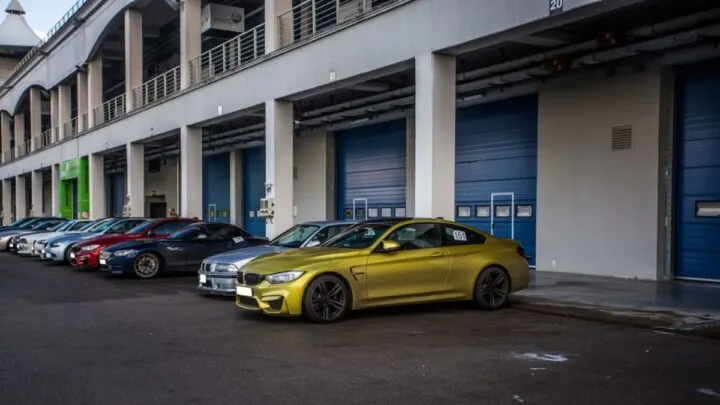When purchasing a family or personal car, safety is one primary concern that you can’t pretend to ignore.
Occasionally, some people will go for the biggest cars, while some will prefer the fastest, and others might prefer comfort.
Regardless of those preferences, almost everyone wants a safe care.
Engineers and manufacturers invest massive resources to build cars that blend comfort, performance, reliability, durability, and safety.
What about your sedan or SUV? How safe is it? That’s the big question here. If you’re planning on buying a safer car and aren’t sure which one to go for between the SUV and sedan, don’t worry.
SUVs tend to be safer than most sedans since they are bigger and heavier. According to the Insurance Institute for Highway Safety (IIHS) and NHTSA, in a crash between mismatched vehicles, the heavier one has better crash protection than the smaller one.
An SUV occupant is 50% more likely to survive a crash than one in a sedan!
But how safer are you in an SUV? Are all SUVs safer than sedans? Read on to find out.

SUV vs. Sedans: Head-On Crashes Statistics
Fatal road accidents are very costly in multiple ways.
Also, studies show that SUVs cause greater damage to other cars when they crash into each other.
In a paper published in the HCA Healthcare Journal of Medicine titled, “Car Ratings Take a Back Seat to Vehicle Type: Outcomes of SUV Versus Passenger Car Crashes,” the researchers conclude that SUVs are safer, and by quite a distance, than most sedans.
A database of 83,251 vehicles involved in head-on collisions divided the crash tests into the following safety rating groups.
- Car vs. lower-rated SUV
- Car vs. higher-rated SUV
- Overall, car vs. SUV
Surprisingly, even the lower-rated SUVs outperformed most sedans. In scenarios where a higher-rated car crashed into a lower-rated SUV, the car occupants were 4.52x more likely to suffer fatal injuries than the SUV occupants.
It gets even worse when a lower-rated car or sedan crashes into a higher-rated SUV. In such a scenario, the car occupants were 9.82x more likely to suffer fatal injuries than the SUV occupants.
So, how will you ensure that you raise your chances of survival if you’re a sedan enthusiast? The answer is that you’re better off going for the higher-rated sedans.
The odds of a driver’s death during head-on crashes decrease by 22% for any 1-star rise in its safety ratings.
Does Vehicle Weight Impact Safety Ratings?
According to the IIHS, keeping all factors constant, a bigger vehicle offers better crash protection than a smaller, lighter one.
And one reason why it’s so is that bigger vehicles such as SUVs have a bigger crumple zone that takes away a more significant fraction of impact from the occupants.
Furthermore, bigger vehicles have greater mass and hence more momentum.
In the case of a crash between an SUV and a sedan, the SUV tends to move forward, having a more significant momentum.
The sedan, being lighter, will be “pushed back,” transferring the negative energy from the crash to its occupants.
In such a scenario, the magnitude of crash forces resembles crashing into an immovable object such as a tree.
So why do people buy sedans? Well, lighter cars have better fuel economy ratings than heavier ones. And, to a degree, some sedans have excellent crash safety ratings, which may be misleading.
Safety is a complex issue that can sometimes be difficult to define and quantify.
National crash test ratings don’t give a clear picture of the situation on the roads.
As we’ve seen, some of the highest 5-star rated sedans don’t stand a chance against lower-rated SUVs.
And similarly, highly rated SUVs don’t stand a chance against heavier trucks and so on.
Traditionally, SUVs used to be unsafe due to their tendency to roll over during crashes. As a result, automobile manufacturers widened SUVs’ wheelbases, lowered their centers of gravity, and introduced Electronic Stability Control (ESC).
ESC lowered car crash fatalities in passenger cars and SUVs by 35% and 67%, respectively.
This engineering shift and the appreciation for driver safety features have transformed SUVs into one of the safest cars on our roads.
Which Car Is Good for You?
When choosing between a sedan and an SUV, always go for individual car crash safety ratings rather than overall ratings.
Nowadays, some of the safest cars on our roads don’t have metal bumpers or grille guards.
Technology and innovation are evolving fast, and you should go for a car with a high safety rating, a functional driver assist, and safety features.
Look for ones with Electronic Stability Control, Antilock Brakes System (ABS), traction control, airbags, seatbelt pretensioners, and Lower Anchors and Tethers for Children (LATCH).
Other features are accident avoidance systems that include adaptive cruise control (ACC), automatic emergency braking (AEB), forward-collision warning (FCW), blind-spot warning (BSW), lane-departure warning (LDW), etc.
Even while in a smaller, lighter vehicle, these accident avoidance systems will improve your chances of survival by attempting to prevent an accident from happening in the first place.
Therefore, you’ll enjoy the excellent fuel economy while being safe. However, an SUV is always safer than a sedan due to its size and mass.

Be Cautious While on the Road
No amount of driver-assist and safety features will give you 100% assurance that you’ll reach your destination successfully.
SUVs are a danger to other cars and pedestrians too. IIHS statistics show that SUVs are more likely to kill pedestrians than cars.
And as the number of annual accident fatalities has dropped from a high 50,000 in 1980 to 36,560 in 2018, the number of pedestrian casualties is rising.
For example, an IIHS study of 79 crashes in Michigan shows that at speeds below 40mph, 30% of SUV crashes resulted in a pedestrian casualty compared to 23% for cars.
At speeds above 40mph, 100% of SUV crashes resulted in a pedestrian casualty, compared to 54% for cars.
As drivers, we need to exercise caution and common sense even when we know we’re right.
Also, observe traffic rules, activate driver-assist and safety features when necessary, wear seat belts, and avoid drugs while on the road.
Final Remarks on SUV vs. Sedan Safety
SUVs are generally safer than sedans, but that doesn’t mean that yours is safer than your neighbor’s.
A 2022 5-star rated sedan is likely much safer than a 2012 SUV due to having many additional safety features.
Additionally, car safety ratings don’t provide a clear picture of the crash situations on our roads. Your driving habits determine whether you will get out of an accident alive or not.
Drive well, and as much as possible, go for a car that has excellent safety features.
The money you “save” by not buying safer cars won’t repurchase your life.
